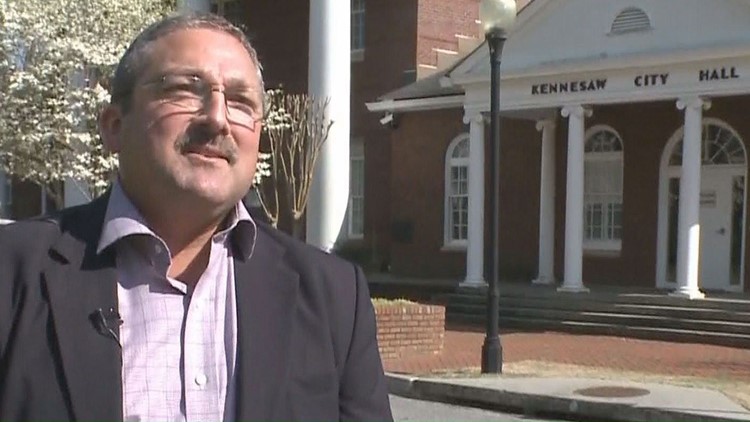KENNESAW, Ga. -- Hit 'em where it hurts – that's what the City of Kennesaw has decided to do to owners of blighted properties who refuse to fix them up: Tax the heck out of them until they do.
To hear Kennesaw's mayor, Mark Mathews, tell it, there are no blighted properties in Kennesaw. And the new law aims to keep it that way.
"We don't have any at this point," Mathews said, and although there are properties that are in violation of various code ordinances, they don't, he said, come under the definition of "blighted."
"This is just looking ahead to have something in place to address it if we do find ourselves in that position."
Along with existing remedies, such as going to a judge to authorize the city to perform the repairs at the owner's expense, "It's just another tool for the toolbox" that the city can use administratively.
Mathews also calls it a solution for a problem that does not exist in Kennesaw – at least for now. He says the city is blossoming again.
Downtown, a developer is beginning construction on a huge, mixed-use project. New subdivisions are flourishing. But Kennesaw sees other communities fighting to bounce back, because they are practically powerless to force owners of blighted properties to fix them.
To prevent that, the new law -- patterned after similar ordinances in other local governments in Georgia -- would allow the city to increase property taxes on blighted properties by seven times. For example, a $900 annual tax bill would increase to $6,300 – to cover the city's costs of dealing with the code violations.
"It's pretty heft," Mayor Mathews said.
No one is talking about going after certain historic keepsakes, such as old farm structures that some property owners have left alone, standing in their yards.
Homeowners like Nicholas Riley are all for it.
"Keep the values in the community up, especially if you're selling a house or trying to buy one, you don't want to look at an eyesore next door and your home looks very nice," Riley said.
There is some skepticism. One woman said if someone could pay that big tax bill, maybe they would have spent the money already, fixing up their properties.
But it is a city law the city hopes and expects it will never have to enforce.



